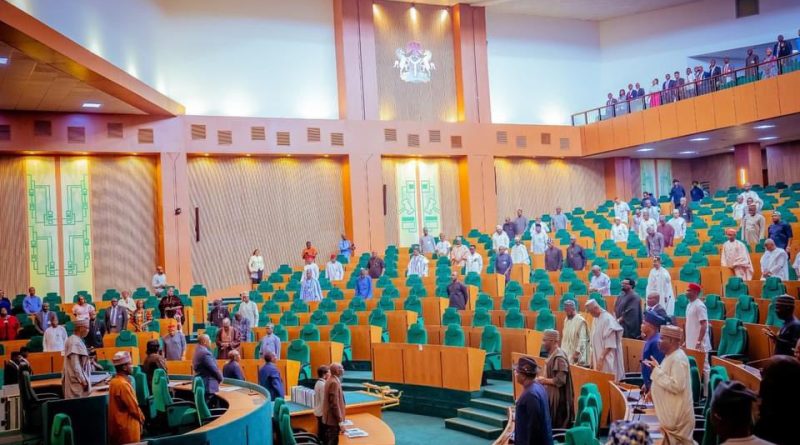Reps approve Tinubu’s $2.3bn external borrowing plan to finance 2025 budget deficit
The House of Representatives has approved President Bola Tinubu’s request to raise over $2.3 billion from external sources to part-finance Nigeria’s 2025 budget deficit, refinance maturing Eurobonds, and issue the country’s debut sovereign Sukuk in the international capital market.
The approval followed the consideration and adoption of a report presented by the Chairperson of the House Committee on Aids, Loans and Debt Management, Abubakar Nalaraba (APC, Nasarawa), during Wednesday’s plenary session.
The report, which was laid on the floor of the House on Tuesday, sought legislative consent for the federal government’s external borrowing and refinancing plans captured in the 2025 Appropriation Act.
Details of committee’s recommendations
In its report, the committee urged the House to approve the implementation of a new external borrowing of N1.84 trillion (about $1.23 billion at the budget exchange rate of N1,500 to $1) to part-finance the 2025 budget deficit of N9.27 trillion.
It further urged the House to refinance the $1.12 billion Eurobonds (7.625% USD 1.118 billion, November 2025 maturity) to ensure timely redemption and preserve Nigeria’s credit standing.
The committee also recommended that the House grants access to an aggregate external capital of $2.35 billion (comprising $1.23 billion in new borrowing and $1.12 billion for Eurobond refinancing) through one or a combination of the following options: issuance of Eurobonds, loan syndications, bridge-finance facilities arranged by book-runners, or direct borrowing from international financial institutions.
It also recommended that the House issues a stand-alone debut Sovereign Sukuk of up to $500 million in the International Capital Market (ICM), with or without credit enhancement or guarantee.
Following the submission of the report, the House dissolved into the Committee of Supply for immediate consideration.
Mild contention
During the deliberation, the Deputy Majority Leader of the House, Abdullahi Halims (APC, Kogi), raised a procedural objection, urging that the report be stepped down to allow further scrutiny.
He argued that members required more time to review the technical details of the borrowing proposal.
However, Speaker Abbas Tajudeen, who presided over the session, expressed displeasure at the intervention.
“On a subject that is not mutually agreed, I’m really not happy with your comments,” Mr Tajudeen said. “I would urge you to withdraw that.”
Mr Halims subsequently withdrew his objection, and the House proceeded to adopt the committee’s recommendations in full.
The report was, thereafter, approved by the Committee of Supply and ratified by the House, effectively granting the executive the go-ahead to implement the borrowing programme.
Background to request
Mr Tinubu had on 7 October written to the House, seeking approval to secure external funding for the 2025 budget, refinance maturing debts, and issue the debut Sukuk.
His request was conveyed in a letter dated 22 September 2025, which was read by Speaker Tajudeen during plenary.
Mr Tinubu said the external borrowing plan included a new loan of N1.84 trillion ($1.23 billion) to bridge the budget deficit, alongside plans to refinance the $1.12 billion Eurobonds maturing on 21 November 2025.
READ ALSO: Court orders final forfeiture of $49,700 alleged bribes recovered from ex-INEC REC’s house
The president also disclosed that the government would issue a $500 million Sovereign Sukuk as Nigeria’s first Islamic bond in the global market.
The president noted that the 2025 Appropriation Act provided for total new borrowings of N9.27 trillion, consisting of N7.43 trillion in domestic loans and N1.84 trillion in external borrowings.
He explained that the government intended to raise the external funds through a range of instruments, including Eurobond issuance, syndicated loans, bridge-finance facilities, or direct borrowing from multilateral and international development institutions.

